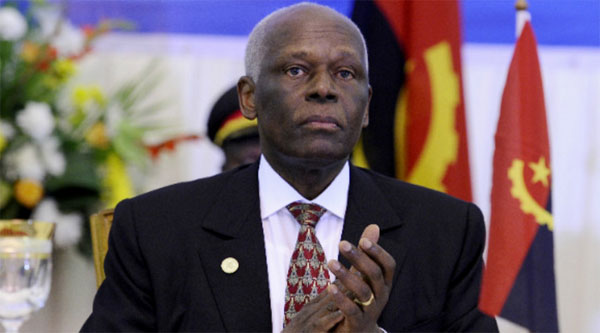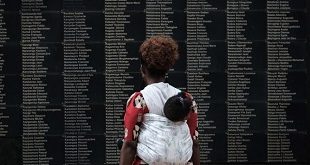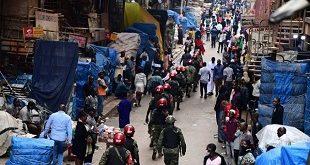
Luanda, Angola | AFP |
Angolan President Jose Eduardo dos Santos’s announcement Friday that he will step down brings to an end a 37-year reign marked by an unrelenting authoritarian style.
Though seldom seen in public, he has been a looming presence in daily life for as long as most Angolans can remember, maintaining fierce control over the country throughout its devastating civil war and recent oil boom.
Now aged 74, and in reportedly poor health, Dos Santos became president in 1979, making him Africa’s second-longest serving leader — one month shy of Equatorial Guinea’s Teodoro Obiang Nguema.
Joao Lourenco, Dos Santos’s defence minister, was named as the ruling party’s candidate to run in the president’s place in August elections.
Until the 27-year civil war ended in 2002, Dos Santos presided over a country torn apart by conflict as his MPLA (People’s Movement for the Liberation of Angola) government fought rebels led by the UNITA group.
He has been credited for leading Angola out of the war, moving away from hardline Marxism and fostering a post-war oil boom and foreign investment surge that transformed central Luanda.
But his rule has also been criticised as secretive and corrupt, with Angola’s citizens suffering abject poverty as his family and the elite enriched themselves.
Married to the glamorous former air hostess Ana Paula, who is 18 years his junior, his children include Isabel, who is head of the state-owned Sonangol oil company and reputed to be Africa’s richest woman — worth $3 billion (2.8 billion euros).
– ‘Instinct for survival’ –
“Against all odds, he has remained in power since 1979, overcoming challenges of war, elections and at the same time displaying a highly-refined political craftsmanship,” said Alex Vines of the British think tank Chatham House.
He is “an accomplished and shrewd economic and political dealmaker with an instinct for political survival.”
From humble beginnings as the son of a bricklayer, Dos Santos joined the MPLA as a teenager and rose quickly through party ranks as a fighter during Angola’s struggle for independence from Portugal.
After stints in Kinshasa and Brazzaville, he went to Azerbaijan to study petroleum engineering and radar communications, returning fluent in Russian and French, in addition to his mother-tongue Portuguese.
In 1979 following the sudden death from cancer of Angola’s liberation president Agostinho Neto, Dos Santos — then planning minister — was sworn in as president.
A presidential election in 1992 was aborted before a second-round vote when his battlefield rival Jonas Savimbi claimed the vote was rigged.
The civil war reignited until Savimbi was killed in 2002.
The most recent parliamentary election in 2012 gave the MPLA another large majority and kept party leader Dos Santos securely in power.
During that election campaign, he made a series of unexpected appearances at public rallies, wearing colourful T-shirts and promising better universities and jobs for young people.
– Dissent not welcome –
As head of the military, police and cabinet, the president has operated with few constraints.
He chooses the senior judges and has MPLA allies in all public agencies, including the supposedly independent electoral commission.
The state keeps a firm hand on the media and his picture often appears on the front pages of newspapers, as well as on countless billboards and posters.
Angola has become a major supplier of oil to China, and Dos Santos has built close ties with the Asian powerhouse.
While he has sought to present himself as a rock of stability, rights activists and opposition members accuse him of systematic repression.
Dissenters risk criminal charges and police crackdowns, they say.
In a 2013 interview for Brazilian television, he declared that his rule had been “too long, too long,” but added that decades of war “meant we couldn’t strengthen state institutions or even carry out the normal process of democratisation”.
Dos Santos has reportedly received cancer treatment in Barcelona over several years.
Always immaculately-dressed, Dos Santos has split his time between his presidential palace in Luanda and a second residence south of the capital.
He rarely travelled on official business while in office, but is said to enjoy music, poetry, cooking fish and was once a keen footballer.
 The Independent Uganda: You get the Truth we Pay the Price
The Independent Uganda: You get the Truth we Pay the Price


